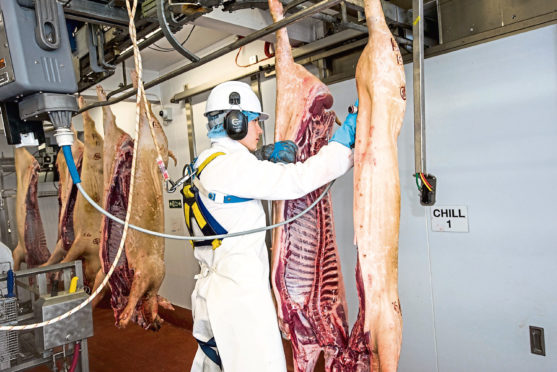Increased paperwork and inspections for post-Brexit exports have brought parts of the UK pork sector to a standstill, claims the National Pig Association (NPA).
The trade body said “excessive bureaucracy” for trading with Europe was causing delays at ports, and in some cases forcing processors to reject shipments and cancel future orders.
It said processors had reported a number of problems since the start of the year.
These include one load being stuck in Calais for 20 hours for vet checks, before being rejected at its final destination in Germany because of the delay.
Another processor said they had needed a vet to stamp Export Health Certificate paperwork 72 times for a 15-tonne load, as there is no electronic option at present and all certificates have to be in hard copy.
“We are seeing a bureaucracy overload and it is already having a big impact on the pig sector,” said NPA chief executive Zoe Davies said.
“This is partly an inevitable consequence of Brexit, but there is a political element, too.
“Why are 30% of all UK consignments to the EU being checked? This is far more than many other Third Country exporters – for New Zealand, for example, the figure is 1%.”
She called on the UK Government to act quickly to resolve the problems, which have hit the cull sow trade particularly badly.
“For the pig sector, this comes on top of an already very difficult situation with processing plants hit by Covid-19 outbreaks and therefore unable to process pigs at the usual rate, meaning pigs are already staying on farms longer than they otherwise would,” added Dr Davies.
The Scottish Association of Meat Wholesalers said the problems were being experienced across the whole red meat sector.
Martin Morgan, the association’s executive manager, said: “Many of these issues were anticipated and shared with government months ago in the faint hope that systems in the UK and in Europe would be fit for purpose on January 1. Regrettably, we are still behind the curve.
“Without bespoke support for exporters from the UK Government all these extra costs and time delays will impact on our margins and percolate right down the supply chain.”
